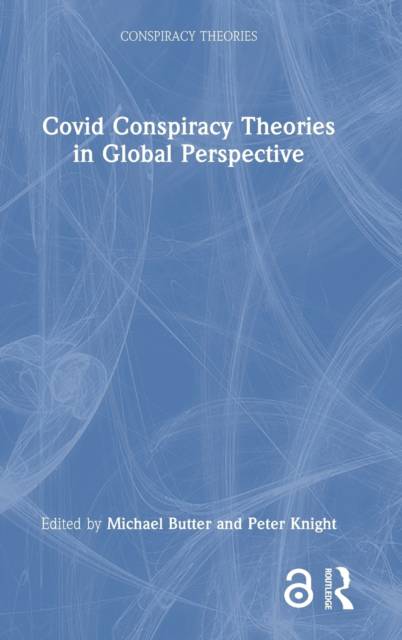
Bedankt voor het vertrouwen het afgelopen jaar! Om jou te bedanken bieden we GRATIS verzending (in België) aan op alles gedurende de hele maand januari.
- Afhalen na 1 uur in een winkel met voorraad
- In januari gratis thuislevering in België
- Ruim aanbod met 7 miljoen producten
Bedankt voor het vertrouwen het afgelopen jaar! Om jou te bedanken bieden we GRATIS verzending (in België) aan op alles gedurende de hele maand januari.
- Afhalen na 1 uur in een winkel met voorraad
- In januari gratis thuislevering in België
- Ruim aanbod met 7 miljoen producten
Zoeken
Covid Conspiracy Theories in Global Perspective
€ 259,45
+ 518 punten
Omschrijving
Covid Conspiracy Theories in Global Perspective examines how conspiracy theories and related forms of misinformation and disinformation about the Covid-19 pandemic have circulated widely around the world.
Covid conspiracy theories have attracted considerable attention from researchers, journalists, and politicians, not least because conspiracy beliefs have the potential to negatively affect adherence to public health measures. While most of this focus has been on the United States and Western Europe, this collection provides a unique global perspective on the emergence and development of conspiracy theories through a series of case studies. The chapters have been commissioned by recognized experts on area studies and conspiracy theories. The chapters present case studies on how Covid conspiracism has played out (some focused on a single country, others on regions), using a range of methods from a variety of disciplinary perspectives, including history, politics, sociology, anthropology, and psychology. Collectively, the authors reveal that, although there are many narratives that have spread virally, they have been adapted for different uses and take on different meanings in local contexts. This volume makes an important contribution to the rapidly expanding field of academic conspiracy theory studies, as well as being of interest to those working in the media, regulatory agencies, and civil society organizations, who seek to better understand the problem of how and why conspiracy theories spread.The Open Access version of this book, available at www.taylorfrancis.com, has been made available under a Creative Commons Attribution-Non Commercial-No Derivatives 4.0 license.
Specificaties
Betrokkenen
- Uitgeverij:
Inhoud
- Aantal bladzijden:
- 398
- Taal:
- Engels
- Reeks:
Eigenschappen
- Productcode (EAN):
- 9781032362137
- Verschijningsdatum:
- 7/02/2023
- Uitvoering:
- Hardcover
- Formaat:
- Genaaid
- Afmetingen:
- 156 mm x 234 mm
- Gewicht:
- 757 g

Alleen bij Standaard Boekhandel
+ 518 punten op je klantenkaart van Standaard Boekhandel
Beoordelingen
We publiceren alleen reviews die voldoen aan de voorwaarden voor reviews. Bekijk onze voorwaarden voor reviews.








